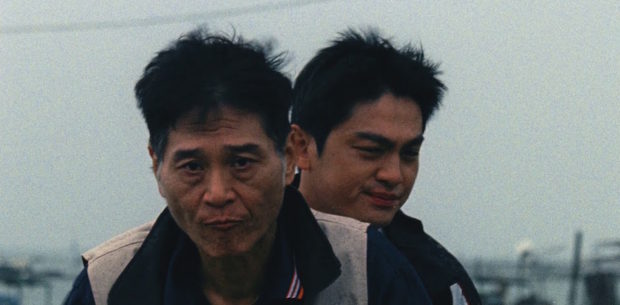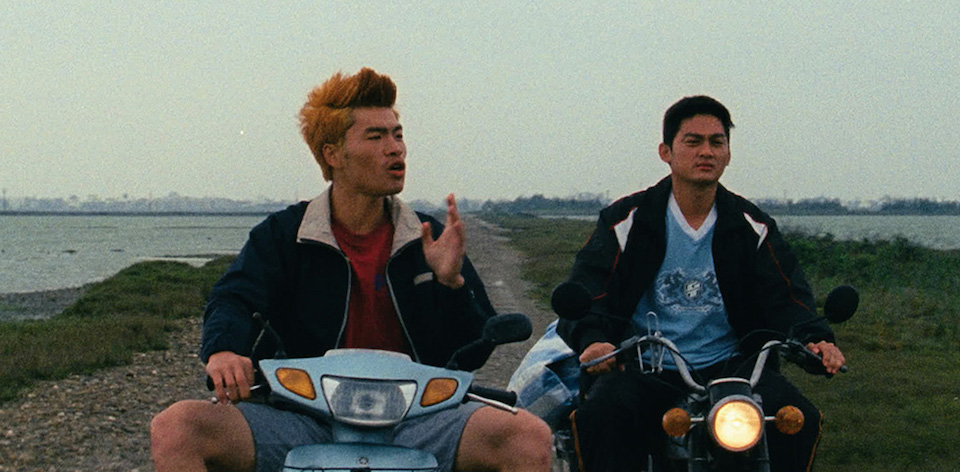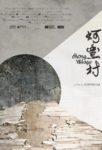Opening with two of the characters casually walking up to a statue of Buddha half-submerged in the sands along the shoreline, you’d be forgiven for thinking this was Taiwan’s answer to Planet of the Apes. Yet OHONG VILLAGE (蚵豐村) keeps its narrative far more grounded. Lim Lung-Yin’s debut feature uses the slowly submerging titular location as the backdrop for an exploration of the old adage about never being able to go back home again.
Lim uses three men to explore this territory, as Sheng-Jii (Lin Yu-Hsu) returns from Taipei to his oyster farming hometown, styling himself as a successful urbanite. As Sheng boasts continue, his father Ming (King Jieh-Wen) eventually calls him on his bullshit, leading to several heated confrontations between the two. Only Sheng’s childhood friend seems to admire his ambitious shop front, aspiring to leave his single industry town and replicate Sheng’s boasts.
The beauty of OHONG VILLAGE is that it can be read in the literal sense, as a tension between generations who place different values on wealth, but it also speaks to a far more universal notion of personal worth. Ming has his own secrets that he keeps from the rest of the family, suggesting that saving face is a hereditary trait. “Family with the same last name,” says Sheng’s grandmother, “but a different fate.”

Shot on 16mm, there’s a documentary quality to Lim’s production. The gentle lapping of the harbour locale, or the scenes around a communal dinner table, is shot in a stark but intimate manner. Lim and cinematographer Alexey Elagin capture the nightlife in a striking fashion, with the glow of colourful lights popping against the grainy perspicacity of the night sky.
OHONG VILLAGE marks the boundary between the old and the new, offering westerners and Taiwanese equal access to the subtleties of generational divides, living up to family expectations, and reconciliation with the past. As the opening night film of the Taiwan Film Festival in Sydney, it’s hard to imagine a more appropriate introduction to contemporary Taiwanese cinema.
2019 | Taiwan | DIR: Lim Lung-Yin| WRITERS: Lim Lung-Yin, Liao Yun-Jie | CAST: Lin Yu-Hsu, King Jieh-Wen, Chen Hsin-Tai | DISTRIBUTOR: Taiwan Film Festival in Sydney (AUS) | RUNNING TIME: 91 minutes | RELEASE DATE: 25 July 2019 (TWFF)






